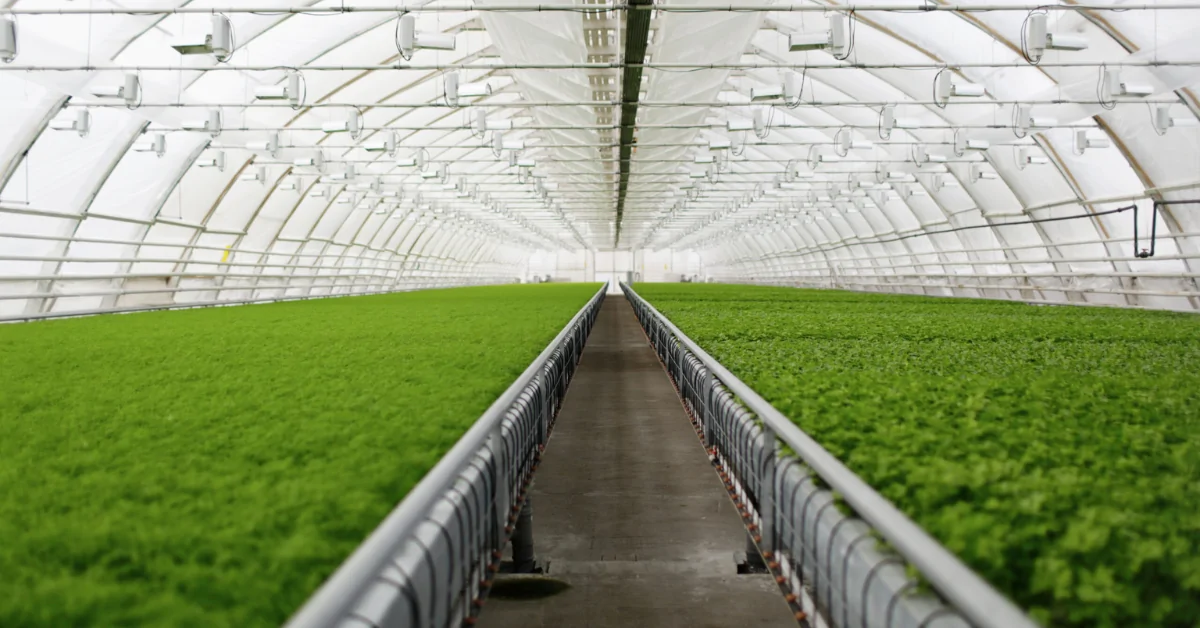Sustainable Practices in Greenhouse Agriculture

Greenhouse agriculture is vital in modern farming, offering a controlled environment that enhances crop production and quality. To reduce environmental impact and ensure long-term productivity, adopting sustainable practices is crucial. This article explores the importance of greenhouse agriculture, practical sustainable methods, and their environmental benefits, and highlights successful sustainable greenhouse operations to inspire others in the field.
The Importance of Greenhouse Agriculture
Greenhouse agriculture provides numerous advantages, including extended growing seasons, protection from adverse weather conditions, and the ability to cultivate a wide variety of crops. By creating a controlled environment, greenhouses can optimize temperature, humidity, and light conditions, leading to higher yields and better-quality produce. This controlled setting also reduces the reliance on chemical pesticides and herbicides, promoting healthier crops and safer food.
Sustainable Practices in Greenhouse Agriculture
Water Conservation
Water is a precious resource, and conserving it is crucial for sustainable greenhouse agriculture. Implementing efficient irrigation systems, such as drip irrigation, ensures that water is delivered directly to the plant roots, reducing waste and evaporation. Rainwater harvesting systems can also be installed to collect and store rainwater for later use, further reducing the demand for freshwater sources. Monitoring soil moisture levels and using sensors can help optimize watering schedules, ensuring plants receive the right amount of water without excess.
Energy Efficiency
Greenhouses require energy for heating, cooling, and lighting. Adopting energy-efficient practices can significantly reduce the environmental footprint of greenhouse operations. Using renewable energy sources, such as solar panels or wind turbines, can power greenhouse systems sustainably. Additionally, installing energy-efficient lighting, such as LED lights, and using automated climate control systems can optimize energy use. Insulating greenhouse structures and using thermal screens can help maintain stable temperatures, reducing the need for excessive heating or cooling.
Integrated Pest Management (IPM)
Integrated Pest Management (IPM) is a sustainable approach to pest control that minimizes the use of chemical pesticides. IPM combines various strategies to manage pests effectively while preserving beneficial insects and maintaining a healthy ecosystem. Practices include introducing natural predators, using biological control agents, and implementing cultural practices such as crop rotation and sanitation. Monitoring and early detection of pest populations allow for targeted interventions, reducing the need for broad-spectrum chemical treatments.
Benefits of Sustainable Practices
Environmental Benefits
Adopting sustainable practices in greenhouse agriculture has significant environmental benefits. Water conservation techniques reduce the strain on freshwater resources, helping preserve ecosystems and ensuring water availability for future generations. Energy-efficient practices reduce greenhouse gas emissions and dependence on fossil fuels, mitigating climate change impacts. Integrated Pest Management reduces the use of harmful chemicals, promoting biodiversity and protecting beneficial insects, such as pollinators.
Crop Production Benefits
Sustainable practices, such as building a DIY hoophouse like those available in Colorado, also enhance crop production and quality. Efficient water management ensures plants receive consistent moisture levels, promoting healthy growth and reducing stress. Energy-efficient systems create optimal growing conditions, resulting in higher yields and better-quality produce. Integrated Pest Management reduces pest damage, leading to healthier plants and increased productivity. Additionally, adopting sustainable practices can improve the marketability of greenhouse products, as consumers increasingly seek environmentally friendly and sustainably grown produce.
Read About: How to Choose the Best Edibles for Your Experience
Conclusion
Now that we have explored the importance of greenhouse agriculture and the benefits of adopting sustainable practices, it is clear that these methods are crucial for the future of food production. By conserving water, reducing energy consumption, and implementing integrated pest management, greenhouse operators can create a more sustainable and environmentally friendly approach to growing crops.






